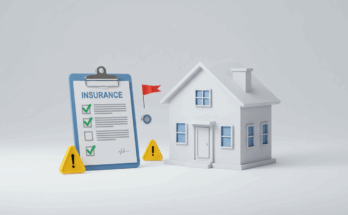When it comes to protecting your property, having the right insurance coverage is essential. Whether you own a single-family home or a condominium, insurance plays a vital role in safeguarding your investment and providing peace of mind. However, home insurance and condo insurance are not interchangeable, they’re tailored to meet the specific needs of different property types. If you’re wondering which type of insurance is right for you, this blog post will break down the key differences between home insurance and condo insurance to help you make an informed decision.
![[Home Insurance vs. Condo Insurance] Key Differences You Must Know](https://luzo.top/wp-content/uploads/2025/08/home-insurance-vs-condo-insurance-key-differences-you-must-know.png)
What Is Home Insurance?
Home insurance, often referred to as homeowner’s insurance, is designed for individuals who own standalone houses. This type of policy provides comprehensive coverage for the structure of your home, your personal belongings, and liability protection in case someone gets injured on your property.
Key Features of Home Insurance:
- Dwelling Coverage: Protects the physical structure of your home, including walls, roof, and foundation, against damages caused by events like fire, storms, or vandalism.
- Personal Property Coverage: Covers your belongings inside the home, such as furniture, electronics, and clothing.
- Liability Coverage: Provides financial protection if someone is injured on your property or if you accidentally cause damage to someone else’s property.
- Additional Living Expenses (ALE): Covers costs like hotel stays or meals if your home becomes uninhabitable due to a covered event.
➢ Home insurance policies are comprehensive because homeowners are responsible for the entire property, inside and out.
What Is Condo Insurance?
Condo insurance, also known as HO-6 insurance, is specifically designed for condominium owners. Unlike standalone homes, condos are part of a shared building or community where certain areas are jointly owned and maintained by a homeowners’ association (HOA). Condo insurance focuses on protecting your individual unit and personal property while also complementing the master insurance policy held by the HOA.
Key Features of Condo Insurance:
- Unit Coverage: Covers the interior of your condo unit, including walls, floors, ceilings, fixtures, and upgrades (if not covered by the HOA’s master policy).
- Personal Property Coverage: Protects your belongings inside the unit, such as appliances, electronics, and furniture.
- Liability Coverage: Provides coverage if someone is injured inside your condo or if you cause damage to another unit.
- Loss Assessment Coverage: Helps cover your share of costs if the HOA imposes a special assessment due to damages or liability affecting shared areas like hallways or roofs.
➢ One key distinction with condo insurance is that it works in conjunction with the HOA’s master policy, which typically covers common areas and the building’s exterior structure.
Which One Do You Need?
⇢ The type of insurance you need depends on the type of property you own:
- If you own a standalone house, home insurance is essential to protect both the structure and everything inside it.
- If you own a condominium, condo insurance is tailored to cover your individual unit while complementing the HOA’s master policy for shared spaces.
It’s also important to carefully review your HOA’s master policy to understand what is covered and what isn’t, this will help you determine how much additional condo insurance coverage you need.
Conclusion
Both home insurance and condo insurance are designed to provide financial protection in case of unexpected events like natural disasters, theft, or accidents. However, their coverage differs significantly based on the type of property you own and the responsibilities tied to that ownership. By understanding these key differences, you can choose the right policy that meets your needs and ensures peace of mind for years to come.
Still unsure about which policy is best for you? Consult with an insurance professional who can guide you through the process and help tailor coverage to fit your unique situation. After all, protecting your home, whether it’s a house or a condo is one of the smartest investments you can make.



